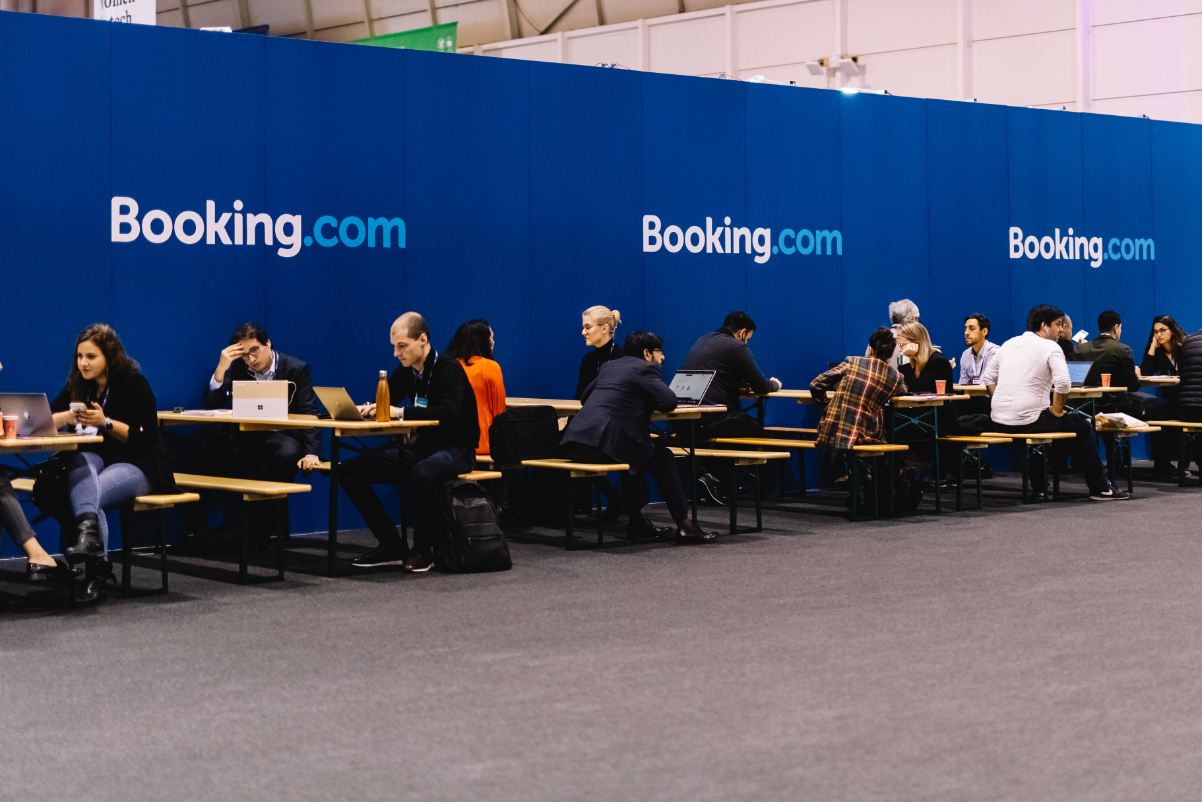Skift Take
Any changes the next wave of artificial intelligence might bring will not be instantaneous. Booking Holdings has time to act to sustain its current position in online travel.
Booking Holdings intends to build on its decade-long experience of using artificial intelligence (AI) to make the most of recent advances in the field and apply them to online travel.
Generative AI — which uses large language models — could improve travel searching, reservations, and customer service, said CEO Glenn Fogel during the online travel giant’s first quarter earnings call Thursday.
“Two interesting possibilities are interactive itinerary building and answering travelers questions,” Fogel said. “Some of our brands, like Kayak and OpenTable, are experimenting with generative AI plug-ins, while others are building ways to integrate the technology into their own offerings.”
Major shifts in technology can be disruptive to the largest players in any digital field. So one analyst asked Fogel if he had any concerns about Booking’s future.
“I feel very confident of where we are in this because of the work we’ve done in AI in the past, the number of people we’ve had working on it, the amount of capital we have, and our collaborations with universities,” Fogel said.
Generative AI could be used for increasing the productivity of the company’s software developers “hopefully in the not so distant future,” Fogel said.
Some longer-term ambitions for the company are to apply the super-charged artificial intelligence to the company’s longstanding goal of creating a “connected trip” for customers.
“Is there a way people interact with us in that connected trip vision [where] you really are able to recreate that human travel agent into something that’s actually an automated player but does so much better than the human being did in the past?” Fogel asked.
Breaking Company Records
In the first quarter, Booking reported that it helped travelers reserve 274 million room nights. That was a quarterly company record and represented a jump of 38 percent year over year. In contrast, Expedia Group’s room night growth trailed in the quarter at 23 percent.
Booking’s net income was $266 million, versus a net loss of $700 million in the prior-year quarter. The company generated $3.8 billion in revenue, a 40 percent spike year-over-year.
A modest, but fast-growing contributor to the Booking Holdings’ revenues was it sales of airline tickets, which rose 73 percent year-over-year. Flight sales on Booking.com was “an important part” of that increase, executives said. The rise in air ticket sales represented a sped-up pace of growth from the 61 percent year-over-year jump in the fourth quarter.
Booking notched a company record in gross bookings for the quarter. Gross bookings reached $39.4 billion, representing a 44 percent jump over the same period a year earlier.
Adding More Rentals
Booking had its highest number of nights booked through alternative accommodations, and the highest share ever of alternative short-term rentals, vacation rentals, and similar lodging as part of its overall mix of lodging reservations. It ended March with 6.7 million alternative accommodation listings, a 2 percent increase over year-end 2022.
“We have seen great traction with the adoption of our enhanced payment solution for alternative accommodation partners in the U.S.,” Fogel said. “We believe rolling out this solution along with other product enhancements last year, including partner liability insurance and an enhanced damage policy is helping to bring more professional supply online to our platform.”
The company’s executive said they were seeing no sign of customers either trading down to lower-star and cheaper hotels or shortening their lengths of stay because of macroeconomic worries. In fact, customers have been continuing to book trips farther in advance than they did pre-pandemic — suggesting confidence in their trip plans.
Looking ahead longer term, Fogel said he believes his company’s long use of artificial intelligence would help it master the current wave of innovations and profit from them.
“Over the years, we have built a strong team of AI experts across the company, and we keep current with the latest AI research through Booking.com’s collaborations with universities,” Fogel said. “This enables us to quickly react, adapt and learn how our traveler customers and supplier partners can benefit from new developments in the field.”
The Daily Newsletter
Our daily coverage of the global travel industry. Written by editors and analysts from across Skift’s brands.
Have a confidential tip for Skift? Get in touch
Tags: artificial intelligence, booking holdings, chatbots, earnings, online travel agencies
Photo credit: A Booking.com sponsored area in a pavilion at Web Summit 2019 in Lisbon, Portugal. WebSummit/Paulo Moura Photography / Flickr/Creative Commons

